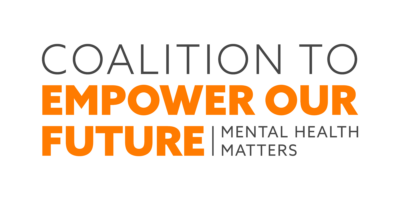How the Complexity of the Youth Mental Health Crisis Recently Hit Home for Me
By Glen Weiner, Executive Director of the Coalition to Empower Our Future
My small-town New York suburb was recently rocked by a traumatic, but sadly all-too-common occurrence. Right around noon word started trickling out that the school my oldest attends was in “lockdown” – meaning the doors to all classrooms were locked and barricaded while the kids huddled on the floor in various corners of the room. This was not a drill.
The school district later informed the community that the event was prompted by a student’s disturbing social media post. Whether a serious threat, a cry for attention or a joke no one should ever make, the police and the school district rightly took it seriously and acted accordingly.
The lockdown lasted 45 minutes. Fortunately, it was determined that there was no actual threat to the safety of the students in the school and the student was removed from the building.
Like other parents in the community, my wife and I went through a range of emotions while waiting for the situation to be resolved – from thinking it would all be okay to sheer panic that we were about to be yet another tragedy. However, as adults, we are, for the most part, more equipped to deal with these emotions. What really hurts is thinking about how these kids will process this incident. Many will likely be fine and move on. But what about those who can’t, even if it’s just one? The impact of having your sense of security undermined in such a dramatic way is bound to have consequences.
We know that incidents such as these – and ones far more troubling – are all too common for our kids today. And that these experiences are just one of the many factors that are driving the youth mental health challenge. School safety and online recklessness are the factors contributing to this case, but other kids are experiencing housing and food insecurity, bullying, a decline in time spent playing outdoors and economic hardships. There is no single cause nor is there a single cure.
This is why the work of the Coalition to Empower Our Future is so important. We need to explore and understand the full complexity of the mental health and wellbeing challenges our young people are experiencing. We need to bring together disparate voices and perspectives and have discussions grounded in reality that lead to innovative solutions. I am confident that serious people can find effective ways to support and empower our children and their parents with the tools they need to thrive. It’s too important for us not to.
###

